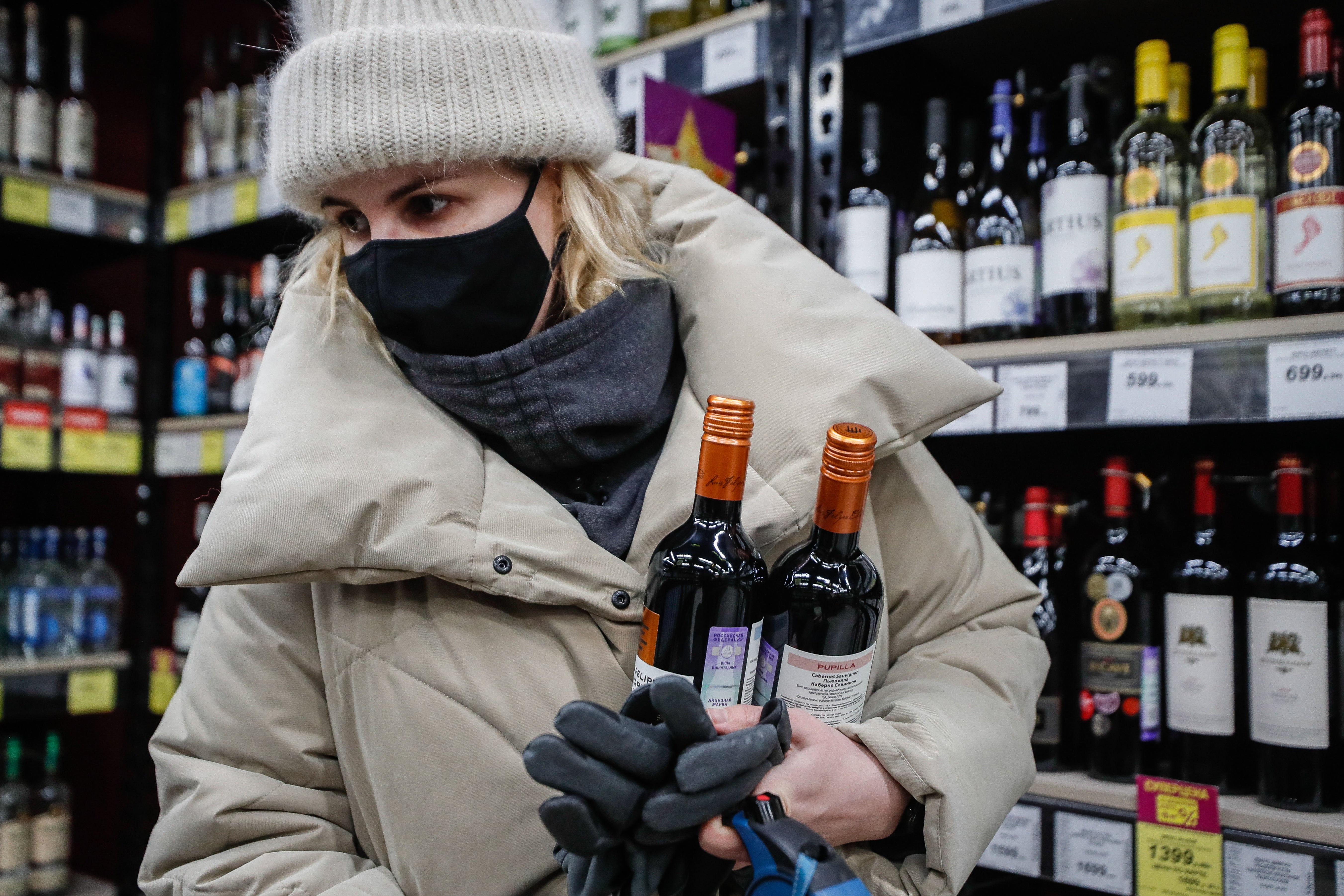Teetotal during lockdown: How to cope when it’s never ‘wine o’clock’
There’s an automatic assumption that we miss drinking. It’s not the booze we miss, but the company

Your support helps us to tell the story
From reproductive rights to climate change to Big Tech, The Independent is on the ground when the story is developing. Whether it's investigating the financials of Elon Musk's pro-Trump PAC or producing our latest documentary, 'The A Word', which shines a light on the American women fighting for reproductive rights, we know how important it is to parse out the facts from the messaging.
At such a critical moment in US history, we need reporters on the ground. Your donation allows us to keep sending journalists to speak to both sides of the story.
The Independent is trusted by Americans across the entire political spectrum. And unlike many other quality news outlets, we choose not to lock Americans out of our reporting and analysis with paywalls. We believe quality journalism should be available to everyone, paid for by those who can afford it.
Your support makes all the difference.If you'd told me a few years ago that the UK would spend much of 2020 in the grip of a global pandemic, and would enter 2021 locked down and in the same perilous state, my initial reaction would have been to order a case of decent rioja.
Actually, scrub that. Several cases. And perhaps some light yet fruity sauvignon blanc, just to take the edge off. After all, we've always been a nation of drinkers... though, not exactly. While alcohol consumption has been falling elsewhere, in Britain we now drink 65 per cent more than we did in the 1960s. Still, it’s a pandemic, we can’t go out: might as well have a drink.
Except for one small “problem”: I gave up alcohol in April 2018.
Admittedly, my own path to non-alcoholic nirvana began with my doctor. I had some strange tendon issues in my hand. Expecting ganglions (a word I often confused with scallions or dandelions and therefore never really took seriously) I took myself off to the surgery, to be met with: “How much do you drink?”
“Some,” I muttered, before the ensuing discussion revealed my true intake. “Too much,” the doctor said. “And what's more, you'll have problems with that hand in years to come if you don’t do something about it now.”
“Are you telling me to cut down – or give up?” I asked him. “Either,” he said. “Cutting down would be good. Giving up is always better.”
And so, remembering a quote attributed to Frank Skinner – that we all receive a lifetime’s booze allowance but some of us don’t pace ourselves – I left the surgery and avowed I was done with drink.
Apart from the following month in which I was grumpy as a proverbial hungover bear, and consumed Maltesers like they were going out of fashion – my body seemingly craving the sugar inherent within alcohol – it’s been a revelation. Better sleep. Thinking more clearly, leading to better decisions. It’s great. And booze can make us depressive. It’s easy enough to become depressed about the current state of the world without chemical inducement.
Now booze-free, I nonetheless find myself besieged by TV ads for beer, and social media posts delighting in gin. In fact, according to a 2015 study, advertising consumption takes place in over 50 per cent of peak time TV programmes and ad breaks. No wonder friends say, “I don't know how you do it!” We're gaslit into becoming dipsomaniacs.
But you know what? Being teetotal is fine. It really is.
Initially, there are a few things you can do to help the transition. Drinking too much, like most potential addictions, is born through habit. Hence, “wine o'clock”. So, adapt the routine. Drink your cordial/juice/Perrier water/whatever, from a wine glass. Sounds daft, but it helps. Find a new soft drink that you really like. Experiment. It doesn't have to be fizzy pop. I discovered a soft drink made from chardonnay grapes that came in a wine bottle, which became quite the crutch for about a year.
Above all, try and see alcohol for what it really is: a drug. A 2015 Institute for Economic Affairs study into alcohol found its actual and societal annual cost to the government was around £3.9bn, whereas tax revenues brought in from sales of alcohol was £10.4bn. Small wonder it’s a drug with special dispensation.
Drinking too much can be akin to being in an abusive relationship. It’s easy to worry that giving up alcohol will see you forced into giving up much more: friends, a social life, a sense of humour, an ability to dance (out of these, the only one that now rings true is the dancing). Imagine being told that having friends is reliant on something not of your doing. It’s insulting.
And yet that’s how alcohol can make us feel; that by not meeting to drink, we have no purpose in meeting at all. Missing the pub during lockdown? There’s an automatic assumption that we miss drinking, whereas I’d hazard it’s not the booze we miss, but the company.
Being teetotal is the new rebellion. It’s practically subversive. And in that spirit, raise your teacups. Cheers!




Join our commenting forum
Join thought-provoking conversations, follow other Independent readers and see their replies
Comments